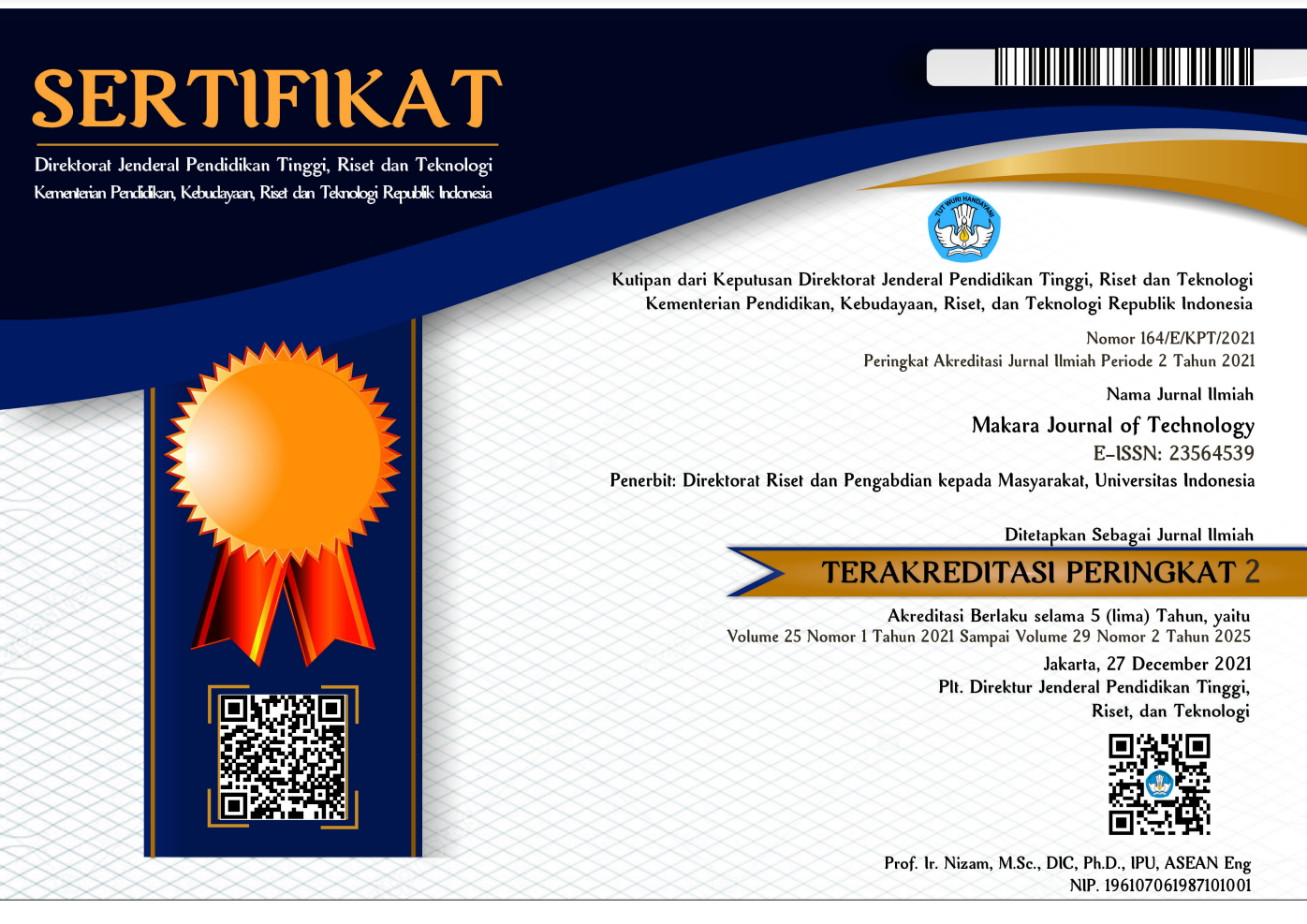Abstract
The Netherlands have tried very hard to increase their renewable energy sources (RES) shares to fulfill the European Union target in 2050. However, RES performance did not show the expected result as the performance declined in 2009 producing even wider gap compare to the target. The Dutch government’s tried to incorporate all interested stakeholders by forming the Dutch energy transition task force. Nevertheless, the task force’s result is also not showing a desirable trend. Key reasons behind the Dutch low RES performance are the lack of shared understanding and positive attitude toward RES development among interested actors. This research uses a role-playing game to increase shared understanding and positive attitude within the actors. The game set players in a competing role as the government, an energy company and the end user. Players were given the ability to make decisions on their respective area. A pilot study was then conducted to measure the effectiveness of the game. The pilot study showed the game increased actor’s individual understanding and shared understanding. Moreover, it also showed that the game increases actor’s positive attitude toward RES development in the Netherlands.
Bahasa Abstract
Meningkatkan Penerimaan Transisi Energi Terbarukan: Pendekatan Simulasi Permainan pada Situasi Multi- Aktor di Belanda. Belanda telah berusaha sangat keras untuk meningkatkan sumber energi terbarukan (RES) untuk memenuhi target Uni Eropa pada tahun 2050. Namun, kinerja RES tidak menunjukkan hasil yang diharapkan karena kinerja menurun pada tahun 2009, yang kemudian memperlebar jarak dari target. Pemerintah Belanda telah mencoba untuk menggabungkan semua pemangku kepentingan dengan membentuk gugus tugas transisi energi Belanda. Namun demikian, hasil satuan tugas juga tidak menunjukkan tren yang diinginkan. Alasan utama di balik kinerja RES yang rendah di Belanda adalah kurangnya pemahaman bersama dan sikap positif terhadap pengembangan RES di antara para pemangku kepentingan. Penelitian ini menggunakan permainan role-playing untuk meningkatkan pemahaman bersama dan sikap positif pada aktor. Permainan ini menjadikan para pemain bersaing dengan satu sama lain sebagai pemerintah, perusahaan energi, dan pengguna akhir. Pemain dapat membuat keputusan pada daerah masing-masing. Sebuah studi percontohan kemudian dilakukan untuk mengukur efektivitas permainan. Studi percontohan memperlihatkan bahwa pemahaman individual dan pemahaman bersama para aktor meningkat. Selain itu, studi ini juga memperlihatkan bahwa permainan meningkatkan sikap positif aktor terhadap pengembangan RES di Belanda.
References
- D. Tilman, R. Scolow, J.A. Foley, J. Hill, E. Larson, L. Lynd, S. Pacala, J. Reilly, T. Searchinger, C. Somerville, R. Williams. Science. 325/5938 (2009) 270.
- K.J. Chalvatzis, E. Hooper. Renew. Sustain. Energy Rev. 13/9 (2009) 2703.
- M. Verdonk, W. Wetzels, Referentieraming Energie en Emissies: Actualisatie 2012 Energie en emissies in de jaren 2012, 2020 en 2030, 2012, ECN: Petten, Planbureau voor de Leefomgeving, Den Haag, The Netherlands, p.70.
- A.N. Menegaki, Energy Econom. 33/2 (2011) 257.
- A. Li, K. Maani, In: J.M. Lyneis, G.P. Richardson (Ed.), Proceedings of the 29th International Conference of the System Dynamics Society, System Dynamics Society, Washington, D.C, 2011.
- ECF, Roadmap 2050-Practical Guide to Prosperous, Low-carbon Europe, in Roadmap 2050-Technical Analysis 2010, European Climate Foundation, Den Haag, p.387.
- CBS, Renewable Energy in the Netherlands 2011, Centraal Bureau voor de Statistiek, Den Haag, the Netherlands, 2011, p.37.
- A. Jordan, H. Asselt, F. Berkhout, D. Huitema, Glob. Environ. Polit. 12/2 (2012) 43.
- T. Maltby, Energy Policy. 55 (2013) 435.
- G. Verbong, F. Geels, Energy Policy. 35/2 (2007) 1025.
- S.D. Freitas, T. Neumann, Comput. Educ. 52/2 (2009) 343.
- H. Qudrat-Ullah, B.S. Seong, Energy Policy, 38/5 (2010) 2216.
- R. Kemp, Int. Econom. Econom. Policy. 7/2 (2010) 291.
- J. Shin, W.-S. Shin, C. Lee, Energy Policy. 54 (2012) 72.
- E. Chappin, Dijkema, Int. J. Crit. Infrastructures. 6/2 (2010) 106.
- G. Yücel, Analyzing Transition Dynamics: The Actor-Option Framework for Modelling SocioTechnical Systems, in Policy Analysis 2010, Delft University of Technology, Delft. p. 85-111.
- M. Schaffernicht, S.N. Grösser, Eur. J. Oper. Res. 210/1 (2011) 57.
- D.F. Andersen, G.P. Richardson, J.A. Vennix, Syst. Dyn. Rev. 13/2 (1997) 187.
- D. Druckman, N. Ebner, Simulation & Gaming. 39/4 (2008) 465.
- G.W. Kuriger, H.–da Wan, S.M. Mirehei, S. Tamma, F.F. Chen. Simulation & Gaming, 41/4 (2010) 487.
- M.S. Moncher, C.A. Parms, M.A. Orlandi, S.P. Schinke, S.O. Miller, J. Palleja, M.B. Schinke. Comput. Human Behav. 5/2 (1989) 79.
- I. Mayer, G. Bekebrede, C. Harteveld, H. Warmelink, Q. Zhou, T. van Ruijven, J. Lo, R. Kortmann, I. Wenzler. British J. Educ. Technol. 45/3 (2014) 502.
- D. Toke, S. Breukers, M. Wolsink, Renew. Sustain. Energy Rev. 12/4 (2008) 1129.
- A.M. Bassi, R. Powers, W. Schoenberg, Energy Econ. 32/1 (2010) 30.
- E. Moxnes, J. Sci. Ind. Res. 51/3(1992) 257.
- E. Pruyt, J. Kwakkel, G. Yucel, C. Hamarat, Proceedings of the 29th International Conference of the System Dynamics Society, Washington, USA, 2011, p. 26.
- J. Sterman, The energy Transition and the Economy: A system Dynamics Approach, Department of Management, Massachusetts Institute of Technology, Cambridge, 1981, p. 48.
- A. Hidayatno, A. Sutrisno, Y.M. Zagloel, W.W. Purwanto, Int. J. Eng. Technol. IJET-IJENS 11/03 (2011) 1.
- Ajzen, Organ Behav Human Decis Process, 50/2 (1991) 179.
- I. Ajzen, J. App. Social Psychol. 32/4 (2006) 665.
- R. Garris, R. Ahlers, J.E. Driskell, Simulation & Gaming, 33/4 (2002) 441.
- N. Pidgeon, Clim. Policy. 12/1(2012) S85.
- R. Wüstenhagen, M. Wolsink, M.J. Bürer. Energy Policy. 35/5 (2007) 2683.
- Abbink, Klaus, J. Brandts, B. Herrmann, H. Orzen. Am. Econ. Rev. 100/1 (2010) 420.
- G. Yücel, C.M.C. Meza, Comput. Math. Organization Theory 14/4 (2008) 320.
- M. Fishbein, I. Ajzen. The Handbook of Attitudes, 2005, p.173.
- G. Walker, P. Devine-Wright. Energy Policy. 36/2 (2008) 497.
Recommended Citation
Sutrisno, Aziiz; Vennix, Jac A. M.; and Syaifudin, Noor
(2015)
"Improving Renewable Energy Transition Acceptance: A Simulation Gaming Approach on a Multi Actor Setting in the Netherlands,"
Makara Journal of Technology: Vol. 19:
Iss.
3, Article 2.
DOI: 10.7454/mst.v19i3.3041
Available at:
https://scholarhub.ui.ac.id/mjt/vol19/iss3/2
Included in
Chemical Engineering Commons, Civil Engineering Commons, Computer Engineering Commons, Electrical and Electronics Commons, Metallurgy Commons, Ocean Engineering Commons, Structural Engineering Commons



